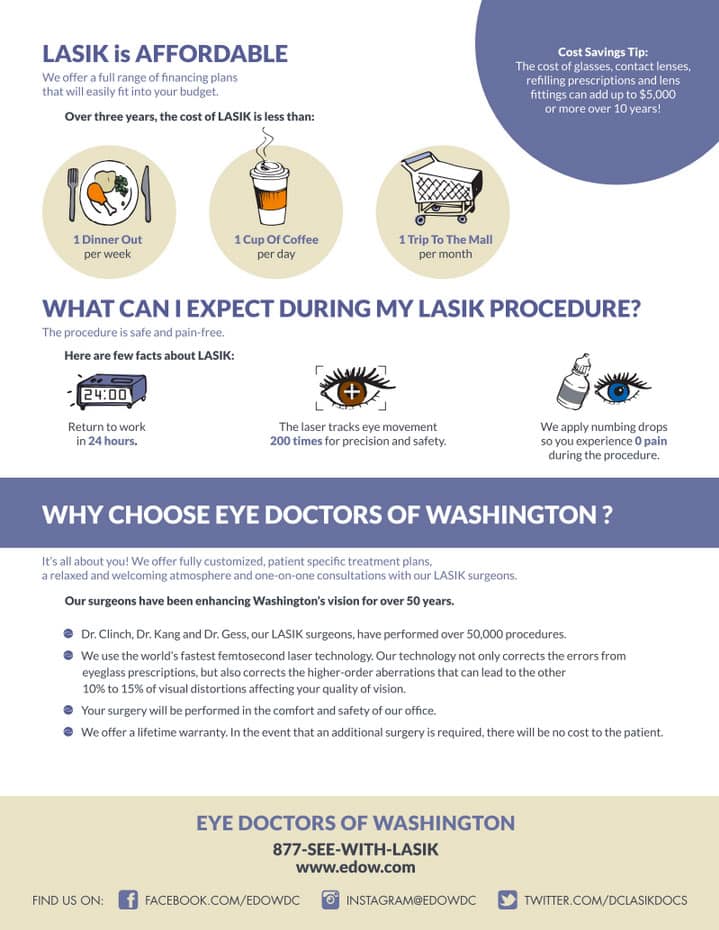New Trends In Eye Care: Essential Offerings For Your Ophthalmology Facility

Short Article Developed By-Morris Haahr
In today's competitive health care landscape, your ophthalmology center must remain ahead by welcoming the most recent developments in eye treatment. Advanced diagnostic modern technologies like OCT can change how you identify problems early, while minimally intrusive surgical techniques can improve client experiences and outcomes. However it doesn't stop there. Customized therapy strategies are becoming crucial for effective care. What various other advancements should you consider to absolutely boost your practice?
Advanced Diagnostic Technologies
As eye care continues to develop, advanced diagnostic technologies are changing just how you keep track of and deal with vision troubles.
With devices like optical coherence tomography (OCT), you can now see comprehensive pictures of the eye's structure, permitting earlier discovery of problems like glaucoma and macular degeneration.
Automated visual field testing assists you examine field of vision extra accurately, while digital imaging systems streamline the procedure of tracking adjustments gradually.
These developments not only enhance the accuracy of your medical diagnosis but additionally improve your treatment alternatives.
By embracing these innovations, you can make certain complete assessments and customized care strategies, inevitably bring about much better outcomes for your people.
Keep educated and invest in these developments to keep your method at the forefront of eye treatment.
Minimally Invasive Surgical Techniques
While conventional surgical methods usually entail significant recovery times and dangers, minimally invasive surgical techniques are revolutionizing eye treatment by providing much safer, quicker options.
These methods, such as small-incision cataract surgical procedure and laser-assisted procedures, minimize trauma to the eye and bordering cells. You'll gain from much shorter recuperation durations and much less postoperative discomfort, permitting you to return to your daily activities quicker.
Furthermore, pop over to this web-site lower the danger of difficulties and improve general medical end results. With improvements in technology, your ophthalmology clinic can provide these innovative options, enhancing patient complete satisfaction and end results.
Welcoming minimally intrusive strategies not just elevates your technique however also ensures that your individuals obtain the best possible treatment customized to their needs.
Personalized Client Treatment and Therapy Strategies
In an age where one-size-fits-all techniques are becoming out-of-date, individualized individual care and treatment strategies are at the center of eye treatment advancement. You should have customized remedies that resolve your special demands, choices, and medical history.
By leveraging advanced diagnostic tools and genetic screening, your ophthalmology facility can produce personalized therapy methods that enhance your visual health and wellness. This approach not only improves patient contentment however likewise boosts results.
Routine follow-ups permit changes to your strategy based on your progress and any kind of emerging demands. Accepting tailored care implies you're proactively involved in your therapy trip, making sure that the services you get align completely with your way of living and objectives.
Benefit from this modern change in eye care today!
Conclusion
Including innovations in eye treatment is crucial for your ophthalmology facility's success. By welcoming sophisticated analysis technologies, minimally intrusive surgical strategies, and personalized treatment strategies, you can significantly boost client end results and complete satisfaction. These advancements not just enhance safety and security and healing times however likewise build count on with your clients. Staying updated with these advancements makes sure that you offer the greatest requirement of treatment, eventually setting your facility apart as a leader in the field of ophthalmology.

